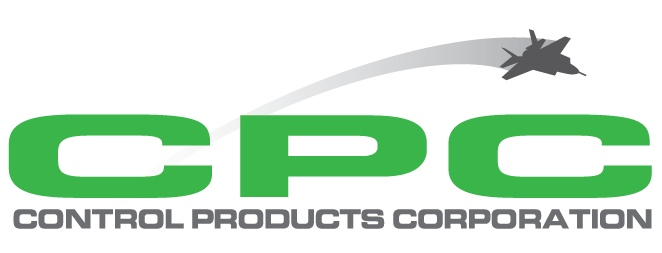Control Products Corporation (CPC) has a longstanding policy to conduct its business lawfully and ethically. Each of our Employees and Business Partners play an important part in maintain our high standards and has an obligation to act at all times in accordance with our policies. Dedicated commitment to legal and ethical behavior is the right thing to do, is good business and is a fundamental to our long-term success. While this Code cannot describe every law, policy or process that may apply and every situation, it does set out some basic principles that should guide your actions.
Directors, officers, employees, other representatives and persons performing services for on our behalf should always do the right thing – follow the law, act honorably, and treat co-workers with courtesy and respect. Failure to do so can result in disciplinary action, including termination of employment. Never retaliate against anyone who reports or participates in an investigation of a possible violation of the Code.
I. Avoid Conflicts of Interest
When you are in a business situation in which competing loyalties could cause you to pursue a personal benefit for you, your friends, or your family at the expense of CPC or our users, you may be faced with a conflict of interest. All of us should avoid conflicts of interest and circumstances that reasonably present the appearance of a conflict. The relationship of the company with its employees should be based on mutual trust.
When considering a course of action, ask yourself whether the action you’re considering could create an incentive for you, or appear to others to create an incentive for you, to benefit yourself, your friends or family, or an associated business at the expense of CPC. If the answer is “yes,” the action you’re considering is likely to create a conflict of interest situation, and you should avoid it.
Conflict of interest examples:
- Employees’ ability to use their position with the company to their personal advantage.
- Employees engaging in activities that will bring direct or indirect profit to competitor.
- Employees owning shares of a competitor’s stock.
- Employees using connections obtained through the company for their own private purposes.
- Employees using company equipment or means to support external business.
- Employees acting in ways that may compromises the company’s legality, i.e. taking bribers or bribing representatives of legal authorities.
When an employee understands or suspects that a conflict of interest exists, they should bring this matter to the attention of management so corrective actions may be taken. The responsibility of resolving a conflict of interest starts from the immediate supervisor and may reach senior management. All conflicts of interest will be resolved as fairly as possible. Senior management has the responsibility of the final decision when a solution cannot be found.
II. Ensure Financial Integrity and Responsibility
Ensure that money is appropriately spent, our financial records are complete and accurate, and our internal controls are honored.
If your job involves the financial recording of our transactions, make sure that you’re familiar with all relevant policies, including those relating to revenue recognition.
Never interfere with the auditing of financial records. Similarly, never falsify any company record or account.
If you suspect or observe any irregularities relating to financial integrity or fiscal responsibility, no matter how small, immediately report them.
III. Obey the Law
Comply with all applicable legal requirements and understand the major laws and regulations that apply to your work. A few specific laws are easy to violate unintentionally and so are worth pointing out here. If you have any questions about these laws or other laws governing our work, please consult the Helpline or our legal counsel.
A. Competition Laws
Be sure you follow all laws designed to promote free and fair competition and protect consumers. These laws generally prohibit:
1) arrangements with competitors that restrain trade,
2) abuse of market power to unfairly disadvantage competitors, and
3) misleading or harming consumers. Some of these laws carry civil and criminal penalties for individuals and companies.
B. Anti-Bribery Laws
We prohibit paying, offering, accepting or soliciting bribes in any form. Our rule is simple – don’t bribe anybody, at any time, for any reason.
Non-government relationships
Be careful when you give gifts (no Cash gift) and pay for meals, entertainment or other business courtesies on behalf of CPC. Avoid the possibility that the gift, entertainment or other business courtesy could be perceived as a bribe or unwarranted advantage. Provide such business courtesies infrequently that promote the company’s brand, when you do, to keep their value moderate.
Dealings with government officials
Various laws prohibit seeking to influence official action by offering or giving anything of value to government officials, candidates for public office, employees of government-owned or -controlled companies, public international organizations, or political parties. Avoid not only traditional gifts, but also things like meals, entertainment, travel, political or charitable contributions, and job offers for government officials’ relatives. With pre-approval, it may be permissible to make infrequent and moderate expenditures for gifts and business entertainment for government officials that are directly tied to promoting our products or services (e.g., a modest meal at a day-long demonstration of our products).
Facilitation Payments
Facilitation payments are payments to public officials for routine government actions. Such as expediting the passage of good through customs, obtaining police protection or expediting the processing of routine government papers. It is our policy not to make any facilitation payments. The only exception is where there is imminent threat to the health, safety and security of an employee or other person providing services to CPC or a member of their family. All such payments must be accurately described and properly accounted for.
Charitable Contributions
Requests for sponsorship commitments, charitable donation or promises of in-kind support by CPC must be referred to the President. Personal charitable contributions must be made at your own expense and not in CPC name.
Political Contributions
Our policy is to comply with all campaign finance and ethics laws, including the prohibiting use of CPC funds to support or oppose political parties or candidates or to reimburse employees or others who make donations to support or oppose political parties or candidates. If wish to make permissible political contributions or participate in the political process, you must do so on your own time and at your personal expense and not in CPC name.
IV. Insider Trading
It is a violation of criminal and civil laws to engage in any securities trading while in possession of material non-public information. All such information shou9le be kept strictly confidential.
V. Trade Controls
Various trade laws control where we can send or receive our products and services. These laws are complex and apply to: importing and exporting goods to or from the United States and other countries exporting services or providing services to non-U.S. persons exporting technical data, especially data originating in the U.S.
If you are involved in sending or making available products, services, software, equipment, or technical data from one country to another, work with your manager to ensure that the transaction stays within the bounds of applicable laws.
VI. Financial Reporting
It is our policy to reflect accurately on all invoices to the customers the sales price and other terms of sales for products sold or services rendered. Every employ has the responsibility to maintain accurate and complete records. We prohibit false or misleading entries inn out books and records for any reason and will not condone any undisclosed or unrecorded bank accounts or assets established for any purpose. All public disclosures shall be full, fair, accurate and understandable.
VII. Asset and Data Protection
You should protect CPC assists and ensure their efficient use. CPC assets should only be used for legitimate business. You must maintain the confidentiality of proprietary or confidential information, including trade secrets, entrusted to you be CPC or our supplies of customers, except when requires by law, regulations or legal proceeding, or when required in the course of doing you job. When we hold or work with information form or about customers, employees, suppliers or other business partners, we must ensure it is properly protected.
VIII. Opportunities
All personnel are prohibited from:
- Taking for themselves personally opportunities that properly belong to CPC or are discovered through the use on corporate properly, information or position.
- Using corporate properly, information or position for personal gain.
- Competing with CPC.
- Only individuals authorized by CPC may speak publicity for CPC.
IX. Human Rights
CPC is committed to supporting fundamental human rights and believes in the dignity and worth of all individuals. As such, we treat all people with fairness and respect. We do not use or allow the use of child, slave, or forced labor or human trafficking in our business. We condemn any degrading treatment of individuals and are committed to providing save working conditions.
X. Conclusion
We rely on one another’s good judgment to uphold a high standard of integrity for ourselves and our company. We expect all CPC personnel to be guided by both the letter and the spirit of this Code.
If you have a question or concern about this Code or believe that someone may be violating it, or if you want to remain anonymous, you can make a report of a suspected violation or concern through and put to Human Resources or placing in a seal Envelope and place in a container outside of Human Resources office.
The submission should be factual rather than speculative and should contain as much specific information as possible to all for proper assessment.

